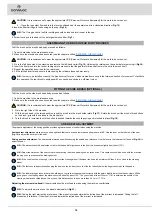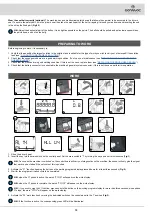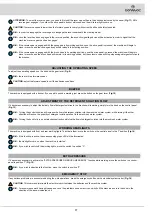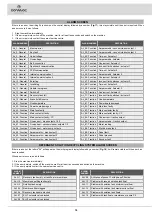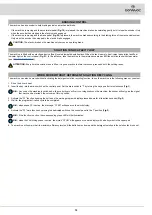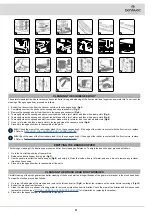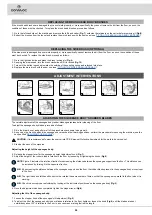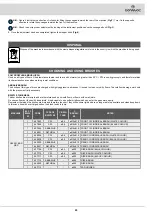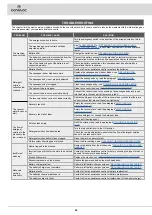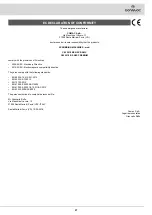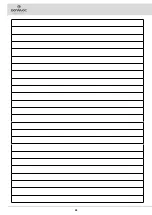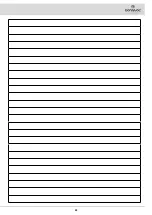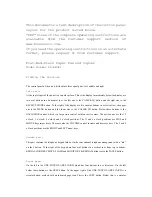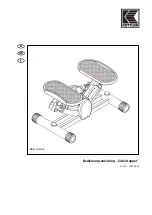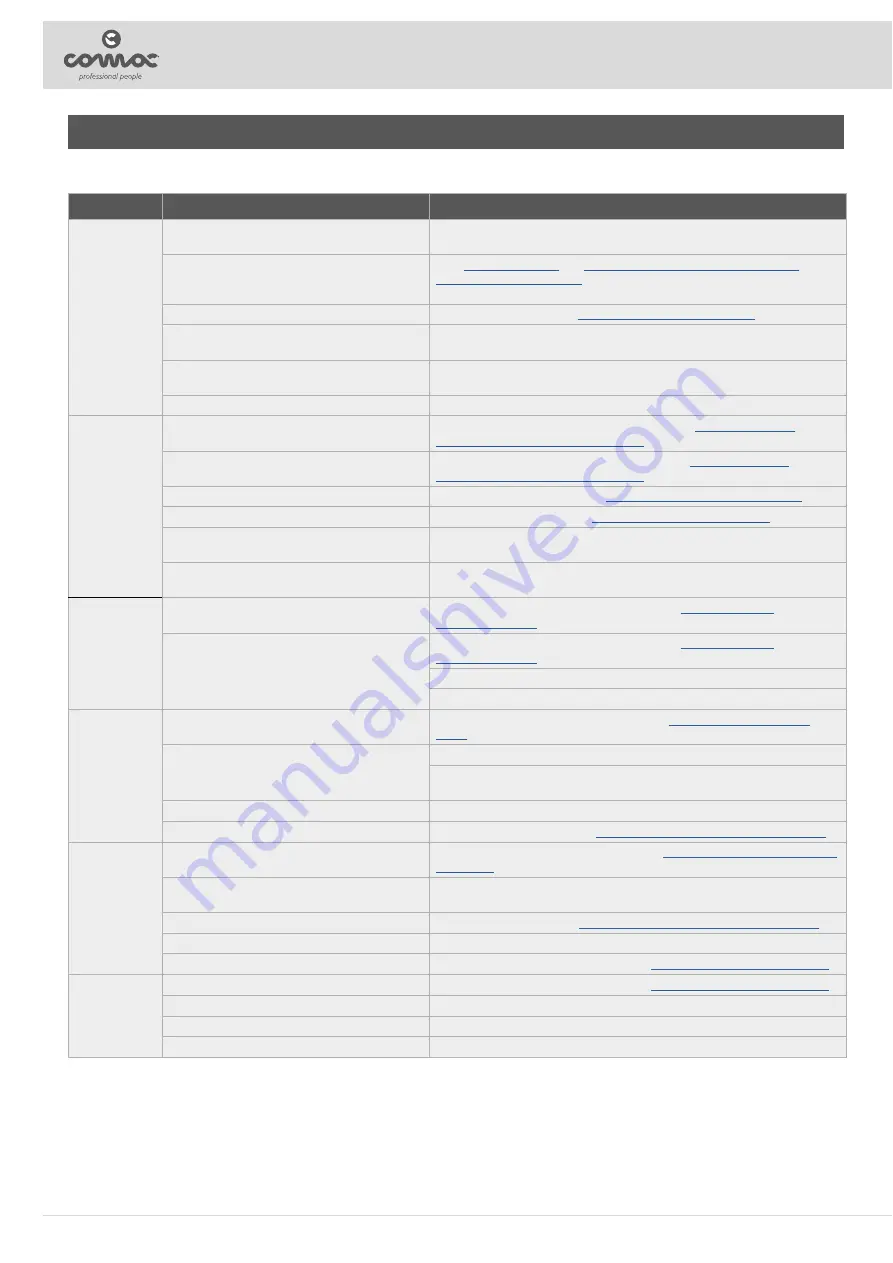
TROUBLESHOOTING
This chapter lists the most common problems linked with the use of the machine. If you are unable to resolve the problems with the information given
here, please contact your nearest assistance centre.
PROBLEM
POSSIBLE CAUSE
SOLUTION
The machine
does not start.
The emergency switch is active.
Turn the emergency switch in the direction of the arrows printed on this to
reset.
The machine's general control board has
detected an alarm.
” and contact your nearest Comac assistance
center.
Batteries flat..
Charge the batteries, see “
”.
The battery connector is disconnected from the
machine's electrical system connector.
Connect the battery connector to the machine's electrical system connector;
this operation must be performed by a specialised Comac technician.
One of the cable bridges of the battery is not
connected properly.
Check the battery connections; this operation must be performed by a
specialised Comac technician.
Batteries faulty.
Contact a Comac assistance centre to replace the batteries.
Detergent
solution
collection low
or absent.
The squeegee rubber blades are worn.
Replace the squeegee body rubber blades; see “
”.
The squeegee body is not properly adjusted.
Adjust the squeegee body; read the paragraph “
”.
The squeegee body is clogged.
Clean the squeegee body; see “
”.
The vacuum tube is clogged.
”.
The vacuum tube is not connected correctly.
Connect the vacuum tube to the nozzle on the squeegee body and insert
into the hole in the rear part of the recovery tank.
The recovery tank cover is not closed correctly.
Tighten the hinges on the side of the recovery tank or check that there are
no obstructions that prevent these from tightening.
The vacuum
motor does not
start.
Recovery tank full.
Empty the recovery tank, read the paragraph “
Recovery tank full of foam.
Empty the recovery tank, read the paragraph “
Use less detergent, or change the detergent type.
Use an anti-foaming agent.
The flow of
detergent
solution to the
brushes is too
low, or absent.
Solution tank empty.
Refill the solution tank; read the paragraph “
Detergent solution flow deactivated.
Turn the tap control lever to the ON position.
Check the command display to ensure that the flow of detergent solution
has not been reduced to zero.
Detergent solution delivery lines clogged.
Rinse the machine water system.
Water system filter clogged or blocked.
Rinse the filter cartridge, see “
CLEANING THE WATER SYSTEM FILTER
Insufficient
cleaning.
Debris trapped in the brushes.
Remove the debris from the brushes; see “
Incorrect type of brush for the work to be carried
out.
Contact a Comac assistance centre for help in choosing the type of brush to
be used for the work to be performed.
Brush bristles worn.
REPLACING THE BRUSH HEAD BRUSHES
Excessive pressure on the brushes.
Reduce the power exerted on the brush head body.
Battery charge level low.
Perform a full battery charge cycle, see “
Reduced
working
autonomy.
The battery charge is not complete.
Perform a full battery charge cycle, see “
Batteries faulty.
Contact a Comac assistance centre for battery replacement.
The batteries require maintenance.
Contact a Comac assistance centre for battery maintenance.
The battery charger is faulty.
Contact a Comac assistance centre for replacement of the battery charger.
26



